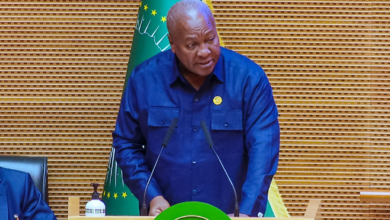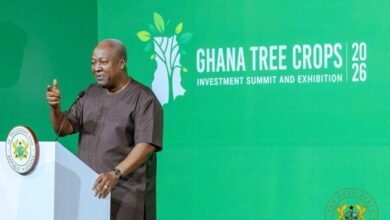Renewable energy: Energy transition, an opportunity for Africa?
Weakened by the Russian-Ukrainian war, the African continent, the least polluting, is the principal victim of climate change. Despite the challenges, the climate crisis offers major opportunities for Africa thanks to renewable energy.
By Mérième Alaoui
As everyone knows, more than 600 million Africans still do not have access to electricity and 930 million still use coal for cooking. In Africa, the average annual electricity consumption per capita is only about 600 kilowatt hours (kWh), compared to 3,200 kWh worldwide, 6,100 kWh in Europe and 4,600 kWh in China, according to the International Energy Agency (IEA).
This is not new, and all the reports show that the solution to the challenges posed by global warming lies in renewable energy (RE). This is true, since the global ecological challenge is becoming increasingly urgent, especially on the eve of COP 27 in Sharm El-Sheikh, Egypt. The situation is such unfair that the continent which is the least polluting (barely 4% of emissions) is nonetheless suffering repeated floods and droughts. The consequences of these disasters are all the more serious because few countries have the infrastructure to deal with them.
More than an ecological solution, RE is proving to be a major economic opportunity. Between 2010 and 2021, the Levelized Cost of Energy (LCOE) of photovoltaic projects dropped by 88%, and by 2021, the LCOE of new photovoltaic and hydro projects was 11% lower than new fossil fuel projects. This cost-effectiveness has the potential to tip the balance.
60% of the best solar resources in the world. Under-tapped resources
Tayeb Amegroud, Energy Specialist, OCP Policy Center Fellow, Morocco believes opting for renewable energy is no longer an option but an opportunity not to be missed. « The speed and low cost of installation of solar power plants, for example, are perfectly suited to the African continent. He compared the development of renewable energy to that of mobile telephony.
Morocco, one of the most advanced countries in renewable energy, despite some delays in the implementation of projects, has a good overall record. Between 2017 and 2018, installed solar power capacity quadrupled from 180 MW to 710 MW. The stated goal of the Mazen Agency charged with steering renewable energy, remains 52% of the mix from renewable sources by 2030. Countries such as Ghana, Kenya and Rwanda are on track to achieve full electricity coverage by the same date, largely thanks to RE.
Even some oil companies are going green. Eni, the Italian energy company and the International Renewable Energy Agency (IRENA) signed a three-year partnership agreement in September 2021, in the midst of a pandemic, to promote renewable energy and accelerate the energy transition in Africa.
However, the continent’s natural resources are still far from being tapped. Five of the ten countries with the greatest solar potential worldwide are African: Namibia (1st worldwide), Egypt (4th), Lesotho (8th), Libya (9th) and Botswana (10th). With regard to wind energy, if the potential of Chad, Mauritania, Niger and Mali were to be deployed to the maximum, it would enable the electrical capacity of these four countries to be multiplied by thirty. According to IRENA, Africa has 60% of the world’s best solar resources, but with only 1% of the world’s installed solar photovoltaic capacity.
African countries have tripled their investments in clean energy in ten years
The development of access to energy is urgent as Africa’s population is expected to double by 2050 and triple by 2100. If no action is taken, the World Bank estimates that climate change could push an additional 40 million Africans into extreme poverty within a decade. According to the African Development Bank (AfDB), the continent’s climate finance needs are as high as $1.6 trillion. Short of this, the continent is expected to suffer losses ranging from $7 billion to $15 billion, or even $50 billion by 2030, according to the pan-African institution.
Despite the challenges, the green energy transition holds great promise for Africa’s socio-economic development. The continent has understood this and has not waited to invest in this economy. According to a study by the Kenyan think tank, Power Shift Africa, countries are investing an average of 2.8% of their gross domestic product (GDP) each year in the climate transition. During the 2010-2019 decade, they invested $47 billion in clean energy, three times the amount committed in the previous decade, namely $13.4 billion. This is very encouraging but far from sufficient.
The Green Climate Fund (GCF), the main global fund that collects financing from industrialized countries for the most vulnerable, is overflowing with projects from all over the world. With extra-care given to African countries. Côte d’Ivoire, which has received two grants from the CVF, is hoping for more. For this purpose, the ministry has even dedicated a department to the preparation of funding applications.
Major issue at COP 27: respecting the polluter pays principle
As for the polluter pays principle, which will be at the heart of the discussions in Sharm el-Sheikh, it is slow to materialize. Between 2014 and 2018, only 46% of what has been committed by Organization for Economic Co-operation and Development (OECD) countries for adaptation in Africa has been disbursed. Yet forty-eight African countries have conditioned the realization of their climate plans on the projected international funding of more than $1.2 trillion by 2030.
“The developed world, a long time ago, promised $100 billion a year in support of climate finance for developing countries. What we get now is a lot of talk and zero financing. It’s time to pay up because Africa is suffering tremendously from the impact of climate change. It’s Africa’s COP, so let’s deal with Africa’s problems by putting the money on the table,” repeatedly emphasized Akinwumi Adesina, president of the African Development Bank (AfDB) Group, at the UN General Assembly this time.
Will the DRC protect the lungs of the planet or will it yield to the temptation to extract fossil fuels from its soil?
In response, African heads of state are getting tougher and intend to remind industrialized countries of their debt, like Senegalese President Macky Sall, who represents the African Union (AU). Eve Bazaïba, the Deputy Prime Minister and Minister of Environment of the Democratic Republic of Congo (DRC) goes further: « What should we do? Exploit our resources and feed our children and grandchildren? Or contemplate them and let our children and grandchildren die of hunger because we must protect the planet? » she said at the pre-COP 27, organized in Kinshasa. For this country, whose soils are well endowed and which has just made new discoveries of gas and oil deposits, the question is very real.
The African continent has other strong arguments to weigh on the negotiations. One of them is concentrated in the DRC and the Congo Basin. Will the country protect this lung of the planet or will it yield to the temptation to extract fossil fuels from its soil? The rich Congolese soil also abounds in rare and strategic minerals such as cobalt, coltan and germanium, which are used in the manufacture of electric cars or storage of solar energy. Finally, the potential for hydropower construction is estimated at 100 thousand megawatts, and a potential of 90 thousand megawatts in other forms of renewable energy. This can whet the appetite of new international investors.






